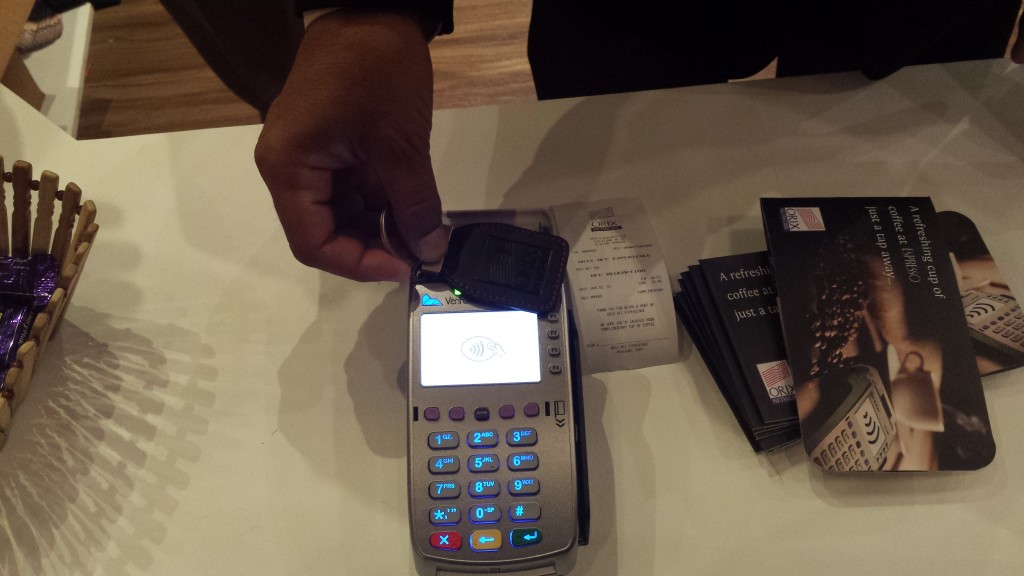If you earn a salary in dollars, but I see a good chance that there will be a dollar collapse in the next ten years, then you might open an account in Euros or some other strong currency, and put all or part of my savings there. You may put a set amount aside monthly so the account keeps growing. If the dollar collapses, my savings are safe and probably worth even more stored as euros. This assumes the euro doesn’t collapse, too.
If you look at Venezuela, who once had one of the strongest and the most stable currencies in South America, it now takes a suitcase full of cash to buy milk. That’s if you can find milk. Before this happened, had anyone hedged by having an account in dollars in a bank outside Venezuela, they would be in a better position today than someone who hadn’t done the same.
But you’d also have to look at the legality of it. Each country has different rules, and in some it might even be illegal to have accounts in foreign currencies, or illegal to keep money outside your country. It’s case by case.
In Pakistan, there are various banks involved in the operation of foreign currency accounts. These banks come up with different offers of opening an account. Below is the brief analysis of foreign currency accounts benefits and drawbacks.
How does a foreign currency account work?
Your typical bank account generally converts money to and from US dollars for transactions in foreign currencies. A foreign currency account, however, allows you to send and receive funds in multiple currencies. You save time with a streamlined transaction and money by avoiding the high fees that come with conversions. And you won’t need to worry about short-term currency fluctuations affecting your bottom line.
The ability to switch among currencies helps you to take advantage of strong exchange rates and send money overseas without the extra charges you’d typically pay for wire or bank-to-bank transfers.
Currencies typically accepted into a foreign currency account include:
- US dollars (USD)
- Australian dollars (AUD)
- Great Britain pound sterling (GBP)
- Euro (EUR)
- Hong Kong dollars (HKD)
- Canadian dollars (CAD)
- Japanese yen (JPY)
- New Zealand dollars (NZD)
- Singapore dollars (SGD)
How do I compare foreign currency accounts?
Find a foreign currency account that’s flexible enough for your needs by comparing accounts across multiple banks. Weigh factors among them that include:
- Supported currencies. Many banks support at least a handful of major currencies, but make sure those you frequently conduct business in are accepted.
- Account minimum. Some banks require a minimum monthly account balance. Find one that matches your cash flow to avoid high fees and penalties.
- Account fees. Ask for a complete list of fees to avoid the surprise of a high maintenance fee each month on your account. Look also for processing or handling fees on specific currencies and transactions.
- Currency conversion charges. In addition to exchange rate differences, your bank might charge a fee each time you convert your money into another currency.
- Transfer amounts. Transaction limitations vary by bank, but you’ll want to make sure your account can handle payment amounts typical for your business — minimums and maximums.
- Turnaround speed. Before choosing an account, learn how long the typical transaction takes between your home banks and accounts overseas.
- Flexibility and support. Select foreign currency accounts allow for transfers, deposits and withdrawals over the phone, online or at a branch. Ask about fees related to each option.
Once you’ve opened your account you can enjoy some advantages:
- Foreign currency cheques clear in USD: Checks from adsense and the like can be deposited in your FC account and the amount will be credited in USD. The advantage is that you can also withdraw in US dollars and exchange at the prevailing open market rates. You don’t have to worry about rupee depreciation. This is a major advantage because the rupee depreciated by 22% against the US dollar in 2008 and around 5% so far in 2018. By keeping your money in a FC account you are protected from rupee depreciation.
Advantages of foreign currency accounts
- No income tax: Deposits in FC accounts are not subject to income tax! So you can receive adsense cheques and deposit them into your FC account and not pay any taxes!
- No WHT on withdrawals: There is no With Holding Tax (WHT) on withdrawals from FC accounts. Withdrawals of Rs. 25,000 or more from Pakistan Rupee (PKR) accounts are subject to WHT but no withdrawals from FC accounts are liable to WHT! So you can withdraw even thousands of US dollars and not pay a cent!
- Outgoing international wire transfer: An FC account is allowed to transfer money via outgoing SWIFT wire transfer to a foreign country. You can pay hosting fees and other expenses using this method.
Disadvantages of foreign currency accounts
However everything has a price in this world so there are some disadvantages associated with FC accounts.
- Minimum balance: An FC account has a minimum balance requirement that ranges from $100-$500. This is a significant amount of money to have blocked in an FC account.
- Low interest: Most Pakistanis don’t like to receive interest on deposits as it is prohibited in Islam. Nevertheless the fact remains that FC accounts deliver lower returns than PKR accounts even in Islamic banks.
- Check clearance fees: Banks charge fees when you deposit checks from foreign companies. The reason is that they have to send the cheques to New York for clearance and the associated courier and labour costs have to be paid by you. The amount is usually in the range of $9-15 per cheque.
- Large withdrawals require notice: Banks usually don’t keep a lot of foreign currency with them. So if you want to make a large withdrawal you have to go to their head office or call up your branch and give them a few days notice for them to arrange the cash. This is inconvenient and a security hazard in a crime ridden country like Pakistan.
- Cheques clearance delays: Cheques can take up to a month to clear. They are sent to New York for clearance but the amount is not credited until two weeks later. This is due to another State Bank of Pakistan rule.
Overcoming the disadvantages
A lot of the disadvantages of FC accounts can be overcome with some pre planning:
- You can hold payments at your ad network to receive multiple months’ payments in one check and save on check clearance fees.
- Some banks allow free cheque clearance if you maintain a large balance. This means that you receive every cent you earn! Make sure you ask your bank if they provide this service before you open an account.
- Choose cheque as a payment method when the amount is large and you can justify the clearance fees. Use western union or wire transfer if that is not the case.
Conclusion
If you make transactions in other currencies on a regular basis, a foreign currency account can help save time and money. Whether it’s for personal or business purposes, this type of account can allow you to manage multiple currencies, get better exchange rates and streamline the process of sending and receiving money. Foreign transaction accounts are available from many large banks; just make sure to be aware of any fees before you sign up.
Opening a FC account is one of best business decisions. It will save your earnings from rupee depreciation and you can enjoy free cheque clearance so you may receive every cent you’re your earnings. With the uncertain conditions of dollar rate changing every single week, we strongly recommend all sorts of business owners with foreign transaction to must have foreign currency account in order to safe your rupee value from devaluation.



